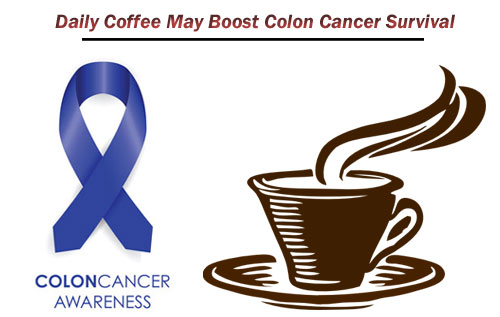
Many Americans start their day off with a hot cup of coffee. An article published on Huffington post shows that more than 400 million cups of this beverage are consumed every day in the United States. Though many people may see a cup of coffee as just what they need to get energized each morning, new research findings show that consuming coffee on a regular basis can help keep colon cancer at bay. The study was conducted jointly by Clalit National Israeli Cancer Control Center – NICCC and the University of Southern California. The study involved study of data collected from 5100 people whose colon cancer diagnosis has been confirmed recently as well as 4,000 people who have no history of colon cancer.
Persons who participated in the study shared information about their coffee intake habits and other lifestyle habits. Questions included the kind of coffee they took, whether espresso, regular, decaf or instant and the quantities that they take. The study established a clear link between taking coffee and not developing colon cancer.
According to the study, persons who took one or two cups of coffee each day reduced chances of contracting colon cancer by 25 percent. Those who took more than 2.5 cups of coffee each day reduced their chances by 50 percent.
Results of a separate study conducted at the Dana-Farber Cancer Institute Regular shows that caffeinated coffee could help in preventing reoccurrence of colon cancer following treatment and even increase chances of getting cured significantly. Patients who took part in this study had undergone chemotherapy and surgery to treat colon cancer, stage III. Such patients benefit more from taking more than 4 cups of coffee each day, according to research findings published on the Journal of Clinical Oncology.
They have 42 percent chances of reducing reoccurrence of cancer compared to patients who do not take coffee and they reduce chances of dying as a result of cancer by 34 percent.
According to Charles S. Fuchs, Dana-Farber’s Director for Gastrointestinal Cancer Center said coffee drinkers lowered risks of cancer reoccurrence and increased their chances of survival in a significant way. In most cases, recurrences occur within 5 years following treatment and tend to be uncommon after this period, he added. In patients whose cancer had progressed to stage III, cancer cells have been found in lymph nodes close to the original tumor with no signs of continuing metastasis.
These studies add to the growing wealth of research that suggest that coffee could have protective effects that guard against development of various types of cancer, including reducing the risk of developing melanoma, post-menopausal breast cancer, advanced prostate cancer and liver cancer. Besides offering possible protection against cancer, coffee has also showed signs of reducing risks of developing type 2 diabetes.






